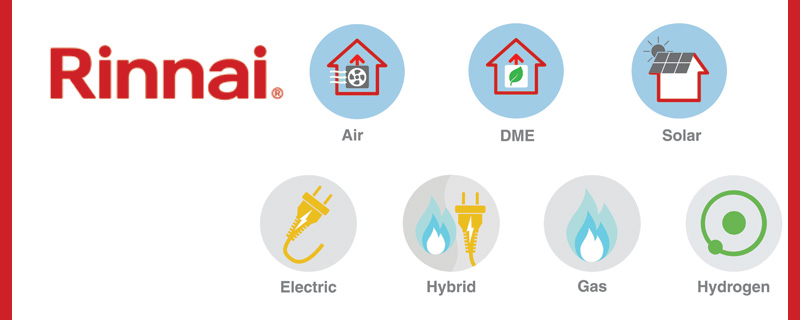WHAT MIGHT THE GENERAL ELECTION MEAN TO THE INDUSTRY?
WILL IT BE A BRAVE NEW WORLD OR JUST MORE OF THE SAME?

Chris Goggin reviews the NetZero policy statements espoused by both of the main political parties this side of the General Election and considers the viability of these plans and gives a summary of the key issues regarding investment, infrastructure and cost evaluated against the trajectory of the international energy market and realistic domestic requirements.
A potential change of government is thought to be likely after the forthcoming General Election. If a change of direction in UK governance is introduced a redrafting of every major UK policy will take place. One area of legislation that remains an important pillar of political discussion is the question of energy – its supply, its price, its security and its impact on NetZero.
To provide a brief overview: the current opposition believes that renewable generation should be expanded far beyond the present government’s ambitions. Nuclear expansion will also be pursued whilst all North Sea drilling contracts will be honored. However, the opposition’s long-term plan is to shelve oil and gas usage in favour of carbon reducing alternative energies.
A more detailed look reveals discrepancies between the opposition and the current government’s approach to all critical areas of UK energy. However, additional renewable energy integration into the UK grid is reliant upon electrical grid upgrades that assist in renewable grid connections. Both political parties have separate plans for UK electric grid upgrading, later visited in this article.
Solar power will be tripled from 15.6 GW to 50 GW of installed capacity, whilst onshore wind will be more than doubled from 15 GW to 35 GW. Green hydrogen targets will also be doubled from 5 GW to 10 GW. Existing nuclear projects will also be completed alongside the completion of smaller nuclear projects such as the construction of small modular reactors. Clean offshore wind production will be quadrupled to 55GW by 2030.
Although the opposition has pledged to increase investment into hydrogen and CCUS (Carbon Capture & Storage) it has not been highlighted how this strategy would best result in a mutually beneficial outcome. For instance, the opposition has not stated whether they will purchase or invest in privately owned hydrogen projects or construct their own hydrogen projects.
A cornerstone of the opposition’s energy policy will be the creation of GB Energy which has been recently described in The Guardian as:
“a state-owned investment vehicle and company working alongside and often in partnership with the existing private sector suppliers. The plan is for it to be largely invisible to households, not offering electricity directly to consumers but financing and helping to build low-carbon infrastructure, from windfarms to – potentially – nuclear reactors.”
GB Energy will have access to £8.3 billion of capital to assist in the completion of strategic objectives. £3.3 billion will be directed towards the construction of localized smaller power projects whilst £5 billion will be invested into larger projects and supply chains. This money will be raised through the taxing of North Sea fossil fuel companies.
Both UK political parties believe that decarbonising the national electricity grid remains a priority that will enable cheaper customer costs and increase clean energy usage across the entire UK. However, they are yet to agree on an appropriate pathway that secures beneficial economic and societal benefits.
The opposition believe decarbonising the UK energy grid by 2030 can be achieved through capacitating £116 billion of investment, whilst the current government’s plan is to extend the 2030 timeline to 2035 and absorb £104 billion of additional subsidy. Time and finance are central issues to both strategies. Both approaches have been labelled as viable and non-realistic, according to which political party an individual subscribes to.
A financial breakdown report was commissioned by Policy Exchange, a research institute that aims to influence domestic and international policy. The report was completed by an independent energy market analytics company – Aurora Energy Research
The current opposition will require huge amounts of capital investment to achieve their aim of decarbonising. Aurora has calculated that £15.6 billion a year until 2030 is required (total £93.5 billion) and a further £4.4 billion a year from 2031 – 2035 (£22.5 billion) equating to a total of £116 billion over the next 11 years.
In contrast current government plans to decarbonise the UK’s power grid by 2035 will require £8.2 billion a year of additional investment until 2030 – a total of £49.3 billon. A further £11.1 billion a year of additional investment from 2031 – 2035 a total of £55.3 billion. The total accumulative investment over 11 years will amount to £104.6 billion over the next 11 years.
The approach undertaken by the current opposition when compared to the present Govt party focuses on the expanding of renewables, hydrogen and nuclear in a shorter span of time at increased financial expense.
We need to keep in mind also that future energy policy by both UK political parties is dependent on wider international energy market conditions and geopolitical influences. There is no doubt that there are no easy or quick answers to the question of providing energy to both commercial and domestic markets.
Rinnai follows all news and developments connected to national and international energy policy, investment and legislation. Rinnai will continue to provide updated information and data-driven knowledge to all UK customers on events that could potentially affect cost and energy options.
CLICK HERE to join the Rinnai newsletter for the
lastest updates on policy, legislation and energy matters

RINNAI OFFERS CLEAR PATHWAYS TO LOWER CARBON AND DECARBONISATION
PLUS CUSTOMER COST REDUCTIONS FOR COMMERCIAL, DOMESTIC
AND OFF-GRID HEATING & HOT WATER DELIVERY
CLICK HERE FOR MORE INFORMATION ABOUT H3
- Rinnai’s range of decarbonising products – H1/H2/H3 – consists of hot water heating units in gas/BioLPG/DME, hydrogen ready units, electric instantaneous hot water heaters, electric storage cylinders and buffer vessels, a comprehensive range of heat pumps, solar, hydrogen-ready or natural gas in any configuration of hybrid formats for either residential or commercial applications. Rinnai’s H1/2/3 range of products and systems offer contractors, consultants and end users a range of efficient, robust and affordable low carbon/decarbonising appliances which create practical, economic and technically feasible solutions.
- Rinnai is a world leading manufacturer of hot water heaters and produces over two million units a year, operating on each of the five continents. The brand has gained an established reputation for producing products that offer high performance, cost efficiency and extended working lives.
- Rinnai products are UKCA certified, A-rated water efficiency, accessed through multiple fuel options and are available for purchase 24/7, 365 days a year. Any unit can be delivered to any UK site within 24 hours.
- Rinnai offer carbon and cost comparison services that will calculate financial and carbon savings made when investing in a Rinnai system. Rinnai also provide a system design service that will suggest an appropriate system for the property in question.
- Rinnai offer comprehensive training courses and technical support in all aspects of the water heating industry including detailed CPD’s.
- The Rinnai range covers all forms of fuels and appliances currently available – electric, gas, hydrogen, BioLPG, DME solar thermal, low GWP heat pumps and electric water heaters More information can be found on Rinnai’s website and its “Help Me Choose” webpage.
RINNAI FULL PRODUCT AVAILABILITY 24/7
FOR NEXT DAY DELIVERY of ALL HOT
WATER HEATING UNIT MODELS INCLUDING 48-58kW UNITS-
SAVINGS OF
20% REDUCTION of opex cost
30% REDUCTION of initial cost
15% REDUCTION in carbon
75% REDUCTION of space
CLICK HERE for the Rinnai Website
Or email engineer@rinnaiUK.com
Or CLICK HERE for more information on the RINNAI product range






